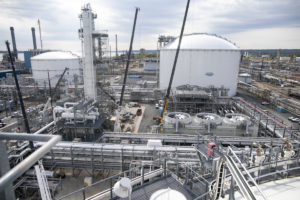
People living in the Northeast are getting great news just in time for home heating season. The U.S. Energy Information Administration (EIA) expects propane heating costs in the Northeast to drop by a striking 12% this winter, and possibly higher, if temperatures measure higher than the forecast.
What’s making this possible for the region? The expected lower fuel bills are in part due to warmer forecast temperatures and lower market prices. But more significant is the fact that this region — primarily, Pennsylvania — is lucky to house a growing reserve of propane, as well as the infrastructure needed to give residents and businesses access to it.
The Marcellus Shale is home to a large propane production site, largely in Pennsylvania, which has proven to be a game changer since the shale revolution began more than a decade ago. And with a growing supply comes the need for additional infrastructure to move it from its source to its end use.
Fortunately for Pennsylvania and the surrounding region, the Mariner East pipeline system, specifically Mariner East 2, currently transports propane from Ohio through West Virginia and ultimately to southeastern Pennsylvania — with customers along the way. Prior to the startup of the first phase of Mariner East, Pennsylvania relied heavily on more limited supplies of propane from the Gulf Coast to support the heavier demand for propane over the winter months.
Now, there are multiple offtake points along the pipeline where Energy Transfer has partnered with propane distributors that have facilities in close proximity to the pipe and have built tie-ins to give them direct access to the propane. It’s a win-win situation: Distributors pay less to transport the supply to their facilities and customers pay less for their propane because they’re buying from a larger, local supply.
All of this is beneficial to propane users, and it goes far beyond home heating. Consumers also use propane for things like water heating, indoor and outdoor cooking, clothes drying, backup power, vehicle fuel, construction equipment and farm irrigation engines. For each of these applications, using propane over alternative sources is often more economic and better for the environment.
In Delaware County, Energy Transfer’s Marcus Hook Industrial Complex (MHIC) offers the only propane supply between Boston and Washington, D.C. The MHIC’s propane storage helps the entire region overcome shortage insecurities, which is especially important for hospitals and manufacturing facilities.

The Pennsylvania propane story is an ongoing success, and we look forward to creating more opportunities to increase consumer access to affordable, domestic propane all across the Northeast.
The lower price of propane heating this winter — that’s simply a bonus.
